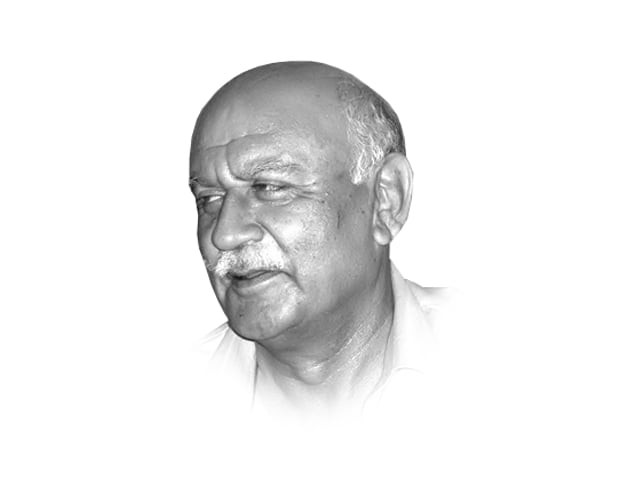A leak, and then some
What one needs to understand about WikiLeaks is that, even more than the media, it thrives on sensationalism.

They have documents and a basic, sordid collection of facts, but in connecting the dotted lines it would do them no harm to stretch a point. Take, for instance, two revelations with regard to General Kayani, our COAS: in the first he says, “I could have taken over during the long march” and in the second, that he “thought about getting rid of Zardari during the long march”.
Anybody who knows Kayani would find it unimaginable that he would share his inner thoughts with anybody, perhaps not even his intimates; I find it unbelievable that he would share such a thought with a US official. If Musharraf had said something similar, it would be very believable; he speaks first and thinks later. Kayani, on the other hand, is not just a laidback individual, but one who only expresses well-considered thoughts.
It comes as no surprise that the COAS handed over an 11-page assessment of the regional situation when he met President Obama. Nor that he would point out to US officials that he had not responded to India’s testing their missile by testing one of ours.
That the Saudi king doesn’t trust our president should come as no surprise; who does? Direct financial assistance to the government was withheld by all countries, during and after the recent flood. Whatever funds are being released are being monitored by multiple agencies. What is new in that?
Nor do I find anything surprising that each country is pursuing a course to further its own interests. Isn’t that what each one should be doing?
The second point is that WikiLeaks is basically targeting the US. It is proving how unsafe secret conversations held with them are; what they think of their ‘ally’ in the war against terror; their duplicity with friend and foe; that the US is losing the war in Afghanistan; that it knows this but refuses to acknowledge it; how low the morale of the US troops in Afghanistan is; how guilty they are of war crimes etc.
In fact, if one reads the American dailies online, one gets the impression that there are two different reports by WikiLeaks; one targeting the US and the other, Pakistan. Since Pakistan is, from the US perspective, the most important yet dubious ally, it obviously figures fairly prominently on the WikiLeaks stage, but centre stage definitely belongs to the US.
From my perspective, there are two areas of concern: why are documents that should be considered sensitive so easily accessed by a private organisation and, secondly, how will these revelations impact US-Pakistan-Afghanistan relations (in which everybody is walking a tight rope) and the ultimate regional situation.
Official spokesmen have assured everybody that the cables will make no difference, but if all and sundry have been stripped for public viewing, it cannot but have a negative impact somewhere. As far as the final outcome for the region is concerned, I continue to adhere to the view that the US will, sooner or later, be forced to beat another retreat. And whatever follows in Afghanistan will impact us adversely, at least for the interim.
Published in The Express Tribune, December 11th, 2010.
















COMMENTS
Comments are moderated and generally will be posted if they are on-topic and not abusive.
For more information, please see our Comments FAQ